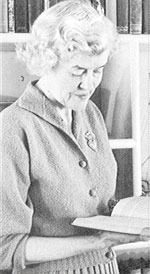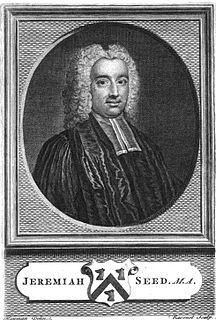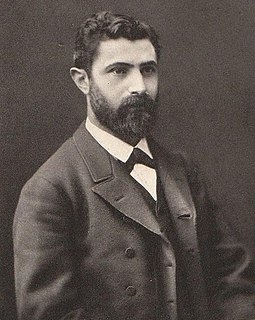Top 377 Lively Quotes & Sayings - Page 7
Explore popular Lively quotes.
Last updated on April 20, 2025.
It had that comfortably sprung, lived-in look that library books with a lively circulation always get; bent page corners, a dab of mustard on page 331, a whiff of some reader's spilled after-dinner whiskey on page 468. Only library books speak with such wordless eloquence of the power good stories hold over us, how good stories abide, unchanged and mutely wise, while we poor humans grow older and slower.
I'm kind of a creature of the alt-weekly universe - my real education into higher culture was acquired in coffee shops, reading those papers, digging into that lively mishmash of opinion for drift, a sense of what to see, what to hear, what to read, etc. - and I'd like to think that scene's still vital, although I understand there's been a fair amount of conglomerating, which would seem to undercut its radical roots, its funky local flavor. I'd encourage any writer with an eye for life and an ear for prose to give it a try. You can work out your chops just fine in newsprint.
Uriah looked better than he did an hour ago--he washed the blood from his mouth, and some of the color returned to his face. I'm struck, suddenly, by how handsome he is-- all his features are proportionate, his eyes dark and lively, his skin bronze-brown. And he has probably always been handsome. Only boys who have been handsome from a young age have that arrogance in their smile. Not like Tobias, who is almost shy when he smiles like he is surprised you bothered to look at him from the first place.
Christianity is not a new philosophy or new morality. We are Christians only if we encounter Christ... Only in this personal relationship with Christ, only in this encounter with the Risen One do we really become Christians... Therefore, let us pray to the Lord to enlighten us, so that, in our world, he will grant us the encounter with his presence, and thus give us a lively faith, an open heart, and great charity for all, capable of renewing the world.
What is a Poet? He is a man speaking to men: a man, it is true, endued with more lively sensibility, more enthusiasm and tenderness, who has a greater knowledge of human nature, and a more comprehensive soul, than are supposed to be common among mankind; a man pleased with his own passions and volitions, and who rejoices more than other men in the spirit of life that is in him; delighting to contemplate similar volitions and passions as manifested in the goings-on of the universe, and habitually impelled to create them where he does not find them.
I wondered what my father had looked like that day, how he had felt, marrying the lively and beautiful girl who was my mother. I wondered what his life was like now. Did he ever think of us? I wanted to hate him, but I couldn't; I didn't know him well enough. Instead, I wondered about him occasionally, with a confused kind of longing. There was a place inside me carved out for him; I didn't want it to be there, but it was. Once, at the hardware store, Brooks had shown me how to use a drill. I'd made a tiny hole that went deep. The place for my father was like that.
When I was at Notre Dame studying under Joe Evans, Frank O'Malley, and others, there was a very lively debate about the distinction between natural law and revealed truth. Most of the philosophers of church and state expected that what was going to be advocated as the law of the land would be related to natural law. If you attempted to draw lines about certain general moral truths that were derivative of logic and reason, they would prove to be widely shared, and therefore suitable to be enacted into law on both the civic and religious sides.
Emile Saint-Blague had been a lively, versatile painter in his youth, but he had abused his energy by painting too many pictures; so that in what might have been the ripe period of his art he had nothing left but ideas. A man who has nothing left but ideas may be of great service to his friends, but he is of no use at all to himself. Emile was certainly an inspiration to his friends.
Great pals we've always been. In fact there was a time when I had an idea I was in love with Cynthia. However, it blew over. A dashed pretty and lively and attractive girl, mind you, but full of ideals and all that. I may be wronging her, but I have an idea that she's the sort of girl who would want a fellow to carve out a career and what not. I know I've heard her speak favourably of Napoleon. So what with one thing and another the jolly old frenzy sort of petered out, and now we're just pals. I think she's a topper, and she thinks me next door to a looney, so everything's nice and matey.
What a shame that Christianity had come here!If the white man had not intruded where he was not wanted, where he did not belong, even now protected by the mountains and the river,the village would have remained a last stronghold of a culture which was almost gone.Mark tried to say that no village,no culture can remain static. I have often thought that if this lively and magnificent land belongs to anyone,it's to the birds and the fish.They were here long before the first Indian and when the last man is gone from the Earth,it will be theirs again.
The analytical writer observes the reader as he is; accordingly, he makes his calculation, sets his machine to make the appropriate effect on him. The synthetic writer constructs and creates his own reader; he does not imagine him as resting and dead, but lively and advancing toward him. He makes that which he had invented gradually take shape before the reader's eyes, or he tempts him to do the inventing for himself. He does not want to make a particular effect on him, but rather enters into a solemn relationship of innermost symphilosophy or sympoetry.
A. Douglas Stone, a physicist who has spent his life using quantum mechanics to explore striking new phenomena, has turned his considerable writing skills to thinking about Einstein and the quantum. What he finds and makes broadly understandable are the riches of Einstein's thinking not about relativity, not about his arguments with Bohr, but about Einstein's deep insights into the quantum world, insights that Stone shows speak to us now with all the vividness and depth they had a century ago. This is a fascinating book, lively, engaging, and strong in physical intuition.
Alan Rocke's Image and Reality does so many things vividly and convincingly: it shows how visual images led chemistry step by step to the reality of the microscopic world; how simple portrayals of the logic of substitution and combination were reified; brings to our attention the imaginative, neglected work of Williamson and Kopp; and takes a critical look at Kekule's daydream. And it beautifully delineates the essential place the imagination has in science. A rewarding, lively picture of chemistry in formation.
Men of superior vivacity and wit, when they take a wrong turn, are generally worse than other men: because wit, consisting in a lively representation of ideas assembled together, gives every sensible object those heightening touches, and that striking imagery, which is unknown to men of slower apprehensions: wit being to sensible objects, what light is to bodies; it does not merely show them as they are in themselves: it gives an adventitious colour, which is not a property inherent in them: it lends them beauties which are not their own.
Light takes the Tree; but who can tell us how?
The lowly worm climbs up a winding stair;
I wake to sleep, and take my waking slow.
Great Nature has another thing to do
To you and me, so take the lively air,
And, lovely, learn by going where to go.
This shaking keeps me steady. I should know.
What falls away is always. And is near.
I wake to sleep, and take my waking slow.
I learn by going where I have to go.
Each time I do a trilogy it's ten years out of my life. I'll finish Episode III and I'll be 60. And the next 20 years after that I want to spend doing something other than Star Wars. If at 80 I'm still lively and having a good time and think I can work for another 10 years between 80 and 90, I might consider it. But don't count on it. There's nothing written, and it's not like I'm completing something. I'd have to start from scratch. The idea of a third trilogy was more of a media thing than it was me.
"Le génie n'est qu'une longue patience", a dit Buffon. Cela est bien incomplet. Le génie, c'est l'impatience dans les idées et la patience dans les faits : une imagination vive et un jugement calme; quelque chose comme un liquide en ébullition dans un vase qui reste toujours froid. "Genius is just enduring patience," said Buffon. This is far from complete. Genius is impatience in ideas and patience with the facts: a lively imagination and a calm judgment, rather like a liquid boiling in a cup that remains cold.
















